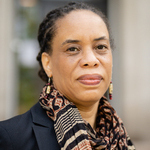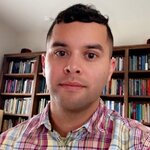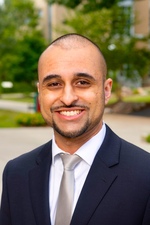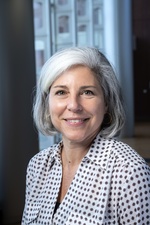Special Education
Register for an Upcoming Information Session
- 2/23/2026: Project Patriots Virtual Interest Event — Virtual — 6:00pm - 7:00pm
Thinking about a Special Ed Bachelors Degree? Want it fully funded through GMU? Come learn about Project Patriot! This program is for individuals who have completed their associates degree in education at a Virginia community college and are eligible to transfer to George Mason. Scholars commit to working in the field of special education for two years for every year of funding received.- Graduate Behavior Analysis & Autism Spectrum Disorders
- Graduate Teacher Licensure & MEd
- Undergraduate
Lead with Your Passion. Become a Leader in Special Education.
Improving the lives, productivity, and education of individuals with disabilities is more than a career. It's a calling.
To answer it, you need a program that prepares you to be a skilled, confident, and effective leader. At George Mason, we provide the most comprehensive, respected, and flexible pathway in the Commonwealth for individuals at every stage of their professional journey. Whether you're pursuing your first teaching license or advancing your expertise, George Mason's Special Education program prepares future and current professionals to make a lasting difference in the lives of learners with disabilities.
We offer multiple pathways with flexible modes of delivery. Working professionals, career changers, and full-time students alike can move forward on their schedule while gaining the specialized knowledge and clinical experience needed to meet diverse learner needs.
Across our undergraduate or graduate programs, you can pursue teacher licensure and non-teaching routes in areas such as K-12 Special Eduction - Adapted Curriculum, K-12 Special Education-general curriculum, PK-12 Blindness and Visual Impairments, and specialized areas including Autism Spectrum Disorders (ASD), Behavior Analysis (BA), Assistive Technology (AT), and American Sign Language (ASL).
Why Choose George Mason CEHD
Flexible pathways for every stage. Choose from online, hybrid, and on-campus formats, including asynchronous courses designed for working professionals.
Licensure and non-licensure options. Advance toward Virginia teacher licensure or deepen expertise through specialized graduate certificates or concentrations.
Proven career outcomes. George Mason leads Virginia's special education master's completions, creating a steady pipeline of well-prepared educators for local districts and advocates for individuals with disabilities.
Affordable access for educators. Benefit from a 15% Virginia educator tuition discount and VDOE-supported stipends in high-need areas.
Nationally ranked program. Ranked #7 Best Online Master’s in Special Education by U.S. News & World Report (2026).
Equity and inclusion at the core. Culturally responsive teaching and Universal Design for Learning (UDL) principles shape every course.
Cohort-based support. Join a collaborative learning model that accelerates licensure for provisional teachers while fostering a professional community.
What Sets Us Apart?
Hands-on, real-world preparation. Embedded clinical fieldwork and internships with Northern Virginia schools ensure graduates are classroom-ready.
Innovative partnerships. Collaborate with Mason LIFE, TTAC, and the Helen A. Kellar Institute for Human disAbilities for applied learning experiences.
Research-driven excellence. A scientist-practitioner foundation equips students to bridge research, policy, and practice in the field.
National leadership in accessibility and technology. Advance with programs in Assistive Technology (AT), Autism, American Sign Language (ASL), and Behavior Analysis that meet evolving professional standards.
Mentorship and assistantships. Work alongside expert faculty in cutting-edge research, expanding your impact beyond the classroom.
Commitment to lifelong learning. Mason's alumni network, advising, and continuing education opportunities ensure support well beyond graduation.





























